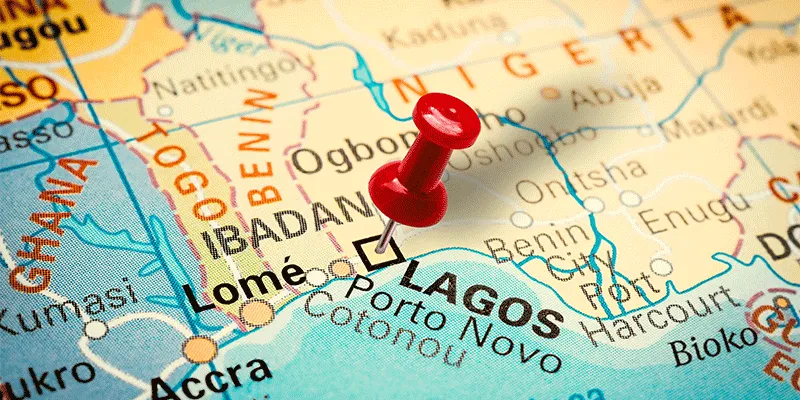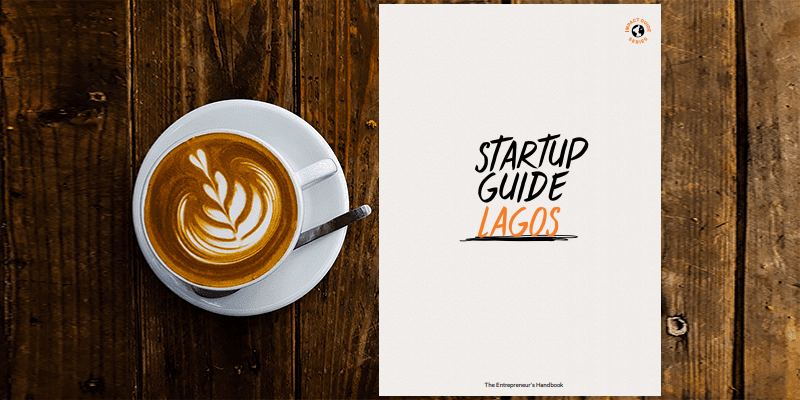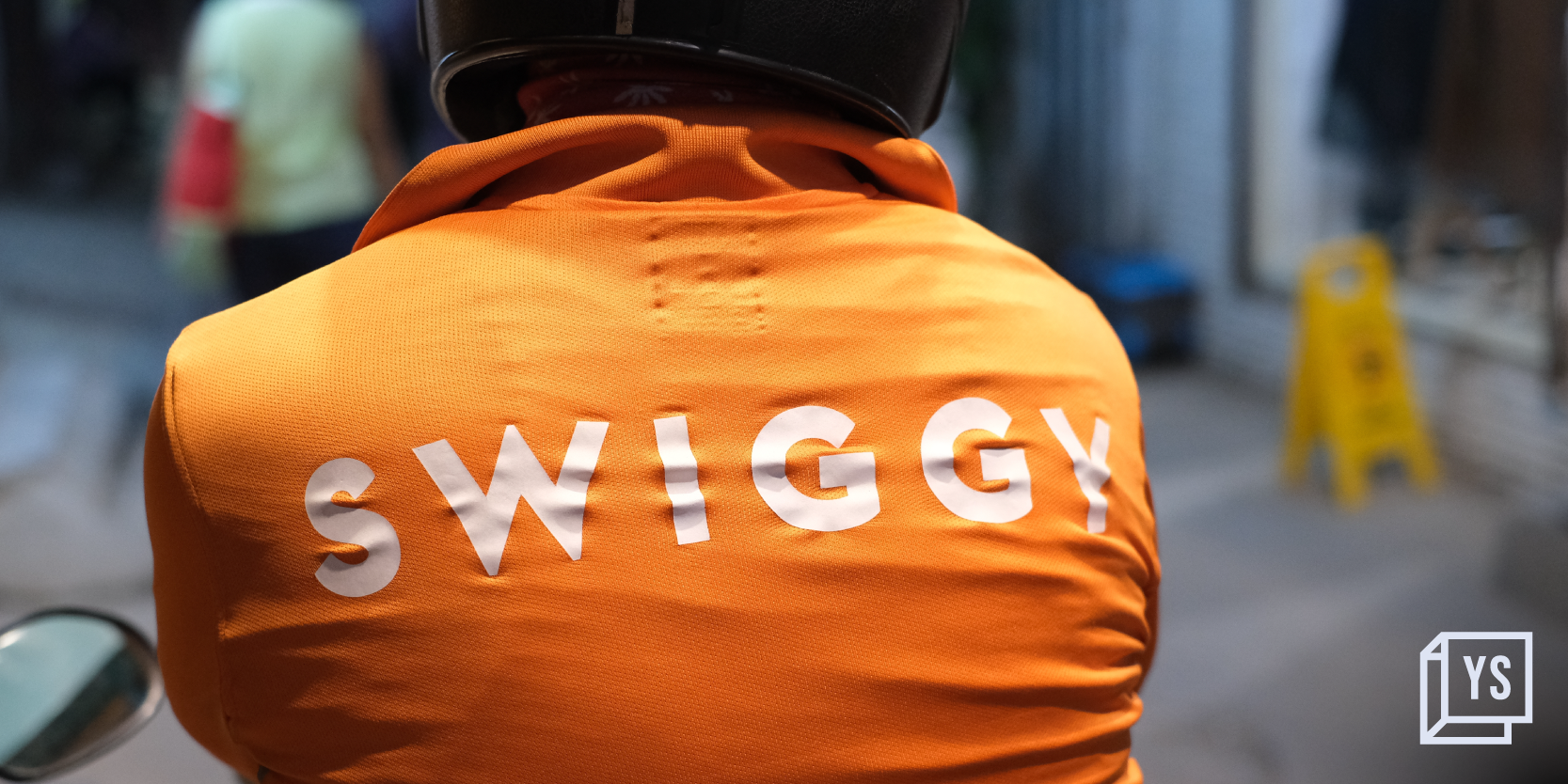Lagos leaders: a profile of the startup ecosystem in Africa’s largest city and entrepreneur hub
The book ‘Startup Guide Lagos’ covers emerging startups, accelerators, investors, and support institutes in the finance hub of Nigeria. Here are some founder and enabler insights.
Launched in 2012, YourStory's Book Review section features over 310 titles on creativity, innovation, entrepreneurship, and digital transformation. See also our related columns The Turning Point, Techie Tuesdays, and Storybites.
The Startup Guide series of books, launched in 2014 by Copenhagen-based publisher Sissel Hansen, covers over 40 cities around the world. See our reviews of the guidebooks for New York, Berlin, Zurich, Paris, Barcelona, Stockholm, Johannesburg, Cairo, Nairobi, Tokyo, Bangkok, and Singapore.
Startup Guide Lagos is spread across 180 pages and makes for an informative and inspiring read, with profiles of founders, co-working spaces, incubators, and other ecosystem players. The whole book series is insightful, superbly illustrated, and well-designed.
Lagos is Africa’s largest city by population and Nigeria’s main financial hub. “Rapidly expanding and with a young and educated workforce, there’s plenty of opportunity for both startups and seasoned entrepreneurs,” Sissel Hansen begins. Though the city can be overwhelming and expensive, it is bustling and energetic, she adds.
“With over 20 million people and a strong ecosystem of innovation hubs, investors, talent, and corporate stakeholders, it is a land of promise for startups,” according to Damilola Teidi-Ayoola, Director of Startup Support at Co-Creation Hub.
Despite infrastructure challenges in Lagos, influential tech companies have emerged this past decade. Notable startups include MainOne, BudgIT, Flutterwave, Interswitch, Paystack, and 54gene.

Overview
One section of the book provides an overview of the city’s overall business environment, such as business culture (“lateness”), languages (English, Yoruba; Igbo, Awori, Hausa), traffic (congested), public transportation (over-stretched, but ride sharing apps available), people (generally conservative but friendly), and nightlife (thriving, with crowded restaurants and busy nightclubs). It also advises on how to deal with visas, taxes, and even scams.
In 2019, Nigeria received 66 percent of the total investment that came into Africa’s fintech sector. Yaba district in Lagos has a large concentration of startups and is nicknamed ‘Silicon Lagoon’.
I. Startup profiles
One section of the book profiles 10 startups based in Lagos, with inspiring origin stories and business descriptions. They include Paystack (online and offline payments) and PiggyVest (automated savings and investment platform).
54gene is an African genomics research, services, and development company. Helium Health is building digital infrastructure for the healthcare sector via telemedicine.
Gricd offers cold-chain-storage logistics solutions. Kobo360 has developed tech-enabled supply chain efficiency solutions. It also provides an insurance service for truck drivers (KoboSAFE).
Farmcrowdy uses online crowdfunding to connect small-scale farmers with investors. Fintech startup Mamamoni facilitates investment in low-income female entrepreneurs.
Edtech startup Edves has developed a platform for automating school processes. TedPrime Hub provides schools and teachers with quality learning resources, some of which are delivered by a portable device (Edubox).
This section also profiles activities of some of the startups during the COVID-19 pandemic such as mobile laboratory to expand testing (54gene), public health emergency response technology (Helium Health), and micro-grants to low-income female entrepreneurs (Mamamoni).
Some of the founders benefitted from awards and support organisations like Y Combinator, TechStars, Adjuvant Capital, GCFund, Chinook Capital, MindCET Go, Access Bank African Fintech Foundry, and Goldman Sachs. Support was also provided by IFC, LEAP Africa Social Innovators, Tencent, Comcast Ventures, Singularity Investments, and Union Bank of Nigeria Edu 360 EdTech challenge.

II. Startup ecosystem
One section of the book profiles seven entrepreneurship support organisations, ranging from incubators to accelerators.
For example, Co-Creation Hub offers an incubation programme. Around 30 startups have graduated, such as LifeBank, WeCyclers, Mamalette, Doctoora, and Stutern.
Passion Incubator has graduated startups like BeatDrone (drone solutions) and Riby (financial services). GreenHouse Lab accelerates women-led early-stage startups.
ScaleUp Lab’s acceleration programme is supported by the FATE Foundation, and is active in sectors like agribusiness, creatives, health and education. The Tony Elumelu Foundation’s Entrepreneurship Programme runs an annual forum as well as an online platform for entrepreneurs.
Lagos Innovates was created by the Lagos State Employment Trust Fund. Facebook Accelerator Nigeria has accelerated over 26 companies since its launch in 2018.
Managers of these institutes offer a number of tips for founders, ranging from mindset to market share. Founders should solve a clearly defined problem and well-identified customer segment.
Markets should preferably be large in terms of size and value. Impact should be clear, and customers should be willing to pay. There should be clear differentiators from the competition. Tech-led solutions can help deliver exponential-growth.
The team should be solid; it should have financial literacy and willingness to recalibrate and pivot in the face of failure.

III. Co-working spaces
Lagos has a number of co-working spaces, five of which are profiled in the book – such as Co-Creation Hub (CcHUB), Impact Hub Lagos, and Workstation.
“Entrepreneurship can catalyse the growth of society,” says Nonyelim Okolie, COO, Leadspace. She was earlier at AIESEC Lagos, Future Awards Africa, and the World Innovations Forum Foundation.
Seedspace GrowthLab is an initiative of Switzerland-based Seedstars. Many of these co-working spaces offer hackathons, pitch events and workshops for members.
IV. Expert insights
One section of the book provides tips from three experts, covering customer experience and ecosystem connections.
“Price is no longer the distinguishing factor for customers – experience is,” observes Titilayo Adewumi, Regional Sales Director, West Africa, SAP. Founders should also focus on building a solid culture so that employees themselves become the voice, heart and core of the brand.
“Entrepreneurs should seek to make a better future for entrepreneurs that come up after them,” advises Eloho Omame, CEO, Endeavor Nigeria. Founded in partnership with the Omidyar Network, it invests at the Series A stage.
“Reinvest in your ecosystem. It’s important to share your knowledge, stories, and resources with the ecosystem that initially nurtured you,” she adds. Successful entrepreneurs should also become angel investors or invest in other catalyst funds.
Lola Cardoso, Head of Retail Banking and Digital, Union Bank of Nigeria, explains how the company’s TechVentures initiative supports entrepreneurs with loans and mentor networks. It also helps via the Rise Challenge, Social Innovators Programme, Centenary Innovation Challenge, Startup Connect, and Alpher programme (for women entrepreneurs).

V. Founder advice
The book features interviews with founders of four startups. The profiled founders trace their entrepreneurial journeys, lessons learnt, and tips for aspiring entrepreneurs.
“We’re now a Pan-African organisation and the largest technology innovation center in Africa,” explains Bosun Tijani, Co-founder of Co-Creation Hub.
It supports startups, SMEs, and NGOs, and has hubs in Nigeria, Rwanda, and Kenya. It has supported hundreds of early-stage ventures in sectors like education, public health and governance.
“Because of COVID-19, everyone feels the need to innovate. We’re seeing that a lot of this rush is not informed by best practices,” he cautions. The focus should be more on application and impact than just the technology itself.
“Find a problem that’s close to your heart and try to solve it,” he advises. “The world always has space for those who are creative thinkers,” Bosun adds.
“Entrepreneurship is for brave souls here,” observes Funke Opeke, Founder of broadband infrastructure company MainOne. It provides telecom and data center solutions.
“A lot of businesses have been able to migrate to working from home because they are well-connected,” adds Funke, who was earlier CTO at MTN.
“Passionate work and passionate play, that’s the secret to fantastic teams,” advises Iyinoluwa Aboyeji, Founder of investment firm Future Africa. A serial entrepreneur, he earlier founded education and tech services platform Andela, as well as payment platform Flutterwave.
“You have to have the courage to be disliked,” he suggests to founders. “The ecosystem needs to be more optimistic and think bigger,” Iyinoluwa adds.
“I think that COVID-19 has really exposed the need for us to march confidently into a digital future and to put human capital at the center,” he says, describing the pandemic’s impact.

“Becoming a proactive entrepreneur instead of a reactive one requires that you always have plans A, B, and C to respond to shifts in market dynamics,” advises Ndidi Nwuneli, Co-founder of AACE Foods. She earlier founded LEAP Africa, and is Managing Partner of Sahel Consulting and author of Social Innovation in Africa: A Practical Guide for Scaling Impact.
The company had to pivot from its early product of jams (due to challenges like high sugar prices and infeasibility of growing strawberries) to spices and soya products. AACE Foods tackles problems of malnutrition among children as well as post-harvest losses among smallholder farmers.
It supplies retailers and wholesalers, and exports to other countries as well. Agriculture is taught in universities with a focus largely on science and not business, Ndidi observes. Her company introduces farmers to technology and provides microfinancing.
The entrepreneurial journey is unclear and may not always be successful, Ndidi cautions. “However, it’s extremely rewarding and you have the potential to transform the lives of your team members, suppliers, distributors and communities,” she enthuses.
She advises founders to be disciplined about their finances, hire employees who have humility and emotional intelligence, and pick a strong board for advice and credibility.
Many of the founders appreciate Lagos as a startup hub despite challenges in infrastructure, bureaucracy, and capital shortages. Some of them also moved back from the US, Canada and Europe to build startups in their home country.
“The ecosystem is evolving and there is a vibrant and young culture here in the city,” says Ndidi. “The tech community, more than any other community, has the power and the reach to come together and create a seismic shift in governance,” Iyinoluwa observes.
“Lagos is dynamic, it’s full of energy and it has a lot of challenges. The challenges inspire creativity,” Bosun says. “It’s not for everybody, but it’s an exciting city,” he adds.
"Lagos has very high energy and it reminds me of New York. It’s very intense and everyone’s got a hustle,” Funke observes.

VI. Schools
One section of the book profiles four entrepreneurship programmes of the city’s universities, as well as a growing crop of entrepreneurship support programs. For example, University of Lagos runs an Entrepreneurship and Skills Development Centre and an incubator.
Semicolon offers a one-year tech entrepreneurship programme, and offers an incubator programme and connects to VCs. Decagon Institute offers a six-month residential course for select students in software engineering and leadership.
“Our programme enables the entrepreneurial mindset in our students to either create jobs for themselves or be intrapreneurs if they become employed,” says Peter Bamkole, Director of the Pan-Atlantic University’s Enterprise Development Centre.
Advice for aspiring founders given by these programme heads includes the importance of motivation, experiential learning, and multi-disciplinarity.
Founders should show commitment and rigour, and need not be perfect. They should demonstrate curiosity and critical thinking, and should have worked earlier for community development.

VII. Investors
The last section of the book profiles nine investing firms, along with sample portfolios and advice for founders. For example, Microtraction has invested in 54gene (genomics) and Cowrywise (fintech platform for personal finance and wealth management).
Acumen West Africa supports impact-focused startups such as Farmers Hope (affordable organic fertiliser) and Easy Solar (renewable energy). Alitheia Capital is an impact investor in sectors like fintech and women-led businesses.
EchoVC Partners has invested in Lifebank (healthcare supply chains) and Gro Intelligence (agri data and forecasts). Growth Capital, a social-innovation fund sponsored by Co-Creation Hub (CcHUB), has supported Lifebank and Drugstoc (platform for affordable drugs).
Lagos Angel Network (LAN) has invested in Hutbay (real estate investment portal), Big Cabal Media (digital media), and Migo (fintech). LoftyInc has invested in Flutterwave (fintech) and Andela (edtech).
Rising Tide Africa is a group of female angel investors who have supported Migo (credit access) and Amayi Foods (African foods for the diaspora).
TLcom Capital is investing out of the Technology and Innovation for Developing Economies Africa Fund (TIDE Africa), and has invested in Kobo360, Andela, uLesson (mobile learning) and Terragon (marketing technology).

The investors offer a range of tips for founders. Be aware of your weaknesses and build a team that fills those gaps.
Do your research. Tackle a major problem, and articulate how your solution creates value for customers and investors. Build for scale and with partners, and know your competitors. Show that you have invested your own capital or secured at least some funding from elsewhere.
The book ends with a glossary of terms and a directory of useful resources for startups, such as investors, meetup groups, and events. For example, forums and events include Lagos Startup Founder 101, Next Gen Developers Meetup, StartupGrind Lagos, Startup Lagos, and Women Who Code Lagos.
In sum, the book provides informative and actionable insights into Lagos’s startup ecosystem, as well as a useful framework for other cities to reflect on and improve their own startup ecosystems.
YourStory has also published the pocketbook ‘Proverbs and Quotes for Entrepreneurs: A World of Inspiration for Startups’ as a creative and motivational guide for innovators (downloadable as apps here: Apple, Android).
Edited by Megha Reddy












![[Exclusive] Vauld to seek 3-month moratorium extension as creditors panel explores bailout options](https://images.yourstory.com/cs/2/a09f22505c6411ea9c48a10bad99c62f/VauldStoryCover-01-1667408888809.jpg)


